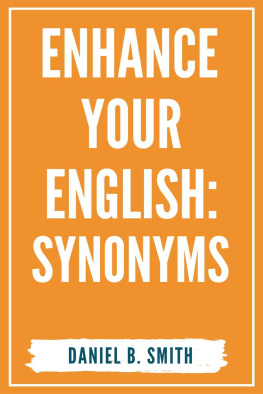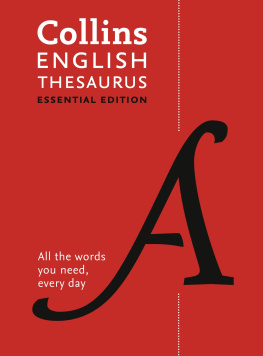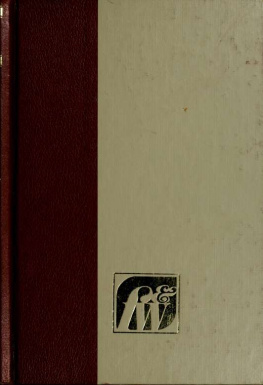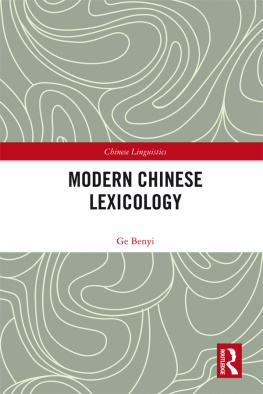Hayakawa - Use the right word : modern guide to synonyms and related words
Here you can read online Hayakawa - Use the right word : modern guide to synonyms and related words full text of the book (entire story) in english for free. Download pdf and epub, get meaning, cover and reviews about this ebook. year: 1968, publisher: Reader’s Digest Association, genre: Religion. Description of the work, (preface) as well as reviews are available. Best literature library LitArk.com created for fans of good reading and offers a wide selection of genres:
Romance novel
Science fiction
Adventure
Detective
Science
History
Home and family
Prose
Art
Politics
Computer
Non-fiction
Religion
Business
Children
Humor
Choose a favorite category and find really read worthwhile books. Enjoy immersion in the world of imagination, feel the emotions of the characters or learn something new for yourself, make an fascinating discovery.
Use the right word : modern guide to synonyms and related words: summary, description and annotation
We offer to read an annotation, description, summary or preface (depends on what the author of the book "Use the right word : modern guide to synonyms and related words" wrote himself). If you haven't found the necessary information about the book — write in the comments, we will try to find it.
Hayakawa: author's other books
Who wrote Use the right word : modern guide to synonyms and related words? Find out the surname, the name of the author of the book and a list of all author's works by series.
Use the right word : modern guide to synonyms and related words — read online for free the complete book (whole text) full work
Below is the text of the book, divided by pages. System saving the place of the last page read, allows you to conveniently read the book "Use the right word : modern guide to synonyms and related words" online for free, without having to search again every time where you left off. Put a bookmark, and you can go to the page where you finished reading at any time.
Font size:
Interval:
Bookmark:

Hayakawa, S. I. (Samuel Ichiye), 1906-1992
This book was produced in EPUB format by the Internet Archive.
The book pages were scanned and converted to EPUB format automatically. This process relies on optical character recognition, and is somewhat susceptible to errors. The book may not offer the correct reading sequence, and there may be weird characters, non-words, and incorrect guesses at structure. Some page numbers and headers or footers may remain from the scanned page. The process which identifies images might have found stray marks on the page which are not actually images from the book. The hidden page numbering which may be available to your ereader corresponds to the numbered pages in the print edition, but is not an exact match; page numbers will increment at the same rate as the corresponding print edition, but we may have started numbering before the print book's visible page numbers. The Internet Archive is working to improve the scanning process and resulting books, but in the meantime, we hope that this book will be useful to you.
The Internet Archive was founded in 1996 to build an Internet library and to promote universal access to all knowledge. The Archive's purposes include offering permanent access for researchers, historians, scholars, people with disabilities, and the general public to historical collections that exist in digital format. The Internet Archive includes texts, audio, moving images, and software as well as archived web pages, and provides specialized services for information access for the blind and other persons with disabilities.
Created with abbyy2epub (v.1.7.2)
Editorial Staff iv
Introduction, by S. I. Hayakawa v
How to Use This Book viii
A MODERN GUIDE TO SYNONYMS 1
Index
This work was a collaborative effort of S. I. Hayakawa, Professor of English and Speech, San Francisco State College, and the Funk & Wagnalls Dictionary Staff. Professor Hayakawa subsequently served as President of San Francisco State College and was elected U.S. Senator from California in 1976.
The following staff members, under the direction of Sidney I. Landau, Editor in Chief of Dictionaries, made substantial contributions to this work:
Editors: Ronald Bogus
Sheila C. Brantley Alma Graham Kenneth Pitchford Harold Ward
Production: Elizabeth T. Salter Barbara A. Tieger
Editorial Assistants: Julie Graham
Jean Kahn
by S. I. Hayakawa
English has the largest vocabulary and the most synonyms of any language in the world. This richness is due to the fact that the English language has grown over the centuries by constantly incorporating words from other languages. Even before the Norman Conquest, the Anglo-Saxon vocabulary included words borrowed from Latin (street, mile, the suffix -Chester in the names of towns), Greek (priest, bishop), Celtic (crag, bin), and Scandinavian (law, fellow, egg, thrall). After the Norman Conquest, the English vocabulary was virtually doubled by the addition of French words, especially those reflecting a higher standard of living and a more complex social life: for example, words connected with food (sugar, vinegar, boil, fry, roast), clothing (garment, robe, mantle, gown), law (plaintiff, perjury, legacy), religion (convent, hermitage, chaplain, cardinal), and social rank and organization (prince, duke, count, vassal, mayor, constable).
While much of the new French vocabulary described new ideas and activities, much of it duplicated the pre-existing Anglo-Saxon vocabulary, giving the writer or speaker a choice of synonyms: cure (French) or heal (Anglo-Saxon), table or board, poignant or sharp, labor or work, mirror or glass, assemble or meet, power or might. Sometimes the duplication of vocabulary was used to make distinctions, ox, swine, calf, and deer were called, when killed and prepared for cooking, beef, pork, veal, and venison; hitting, striking, stealing, and robbing became, when viewed through the eyes of French law, assault, battery, larceny, and burglary.
With the enormous expansion of classical learning in the Renaissance, there was a great influx of words of Latin and Greek origin into the language, dictated by the demands of an enriched intellectual and cultural life. Also, the larger world discovered through travel (from the Crusades onward) and exploration (especially in the Elizabethan period) was a great stimulus to culture and language. There also arose in the sixteenth century a fashion of ornamenting ones discourse with what were then called aureate or inkhorn terms drawn from Greek and Latin. Shakespeares multitudinous seas incarnadine is a famous example, and what happened to these particular words is typical of the fate of this new vocabulary: multitudinous stayed in the language as one of several synonyms for many, while incarnadine is not heard any more except in this context. In brief, many words of classical origin introduced into the language during the Renaissance became permanent additions, but most were soon forgotten or were relegated to special technical contexts, like hebdemodary (weekly) and gressorial (having to do with walking).
VI
Modern Guide to Synonyms
The adventures of English-speaking people as they traded and fought and traveled around the world in modern timesin Europe, North America, India, Australia, Africaalso expanded the vocabulary. Words were borrowed from Dutch {tub, spool, deck), Spanish {sherry, armada, grenade), American Indian {squash, toboggan, hickory), East Indian {cashmere, punch, shampoo), Afrikaans {veld, trek), Italian {soprano, casino, macaroni), Mexican {chocolate, tomato), Australian {kangaroo, billabong), Japanese {kimono, ricksha), Malay {amok, ketchup), and many others.
Furthermore, the United States, as a separate nation with its own life and character and institutions, added vastly to the English vocabulary, beginning in Colonial times. With the rise of the United States to a position of world influence in politics, science, industry, trade, and the popular arts, American words and phrases have gained recognition and prestige everywhere. Ice cream, jeep, and rock-and-roll are internationally known terms, as are containment, DEW-line, and nuclear deterrence. Moreover, American terminology for many things exists side by side with an English terminology, placing another whole group of synonyms at our service: help (American) and servant (British), sidewalk and pavement, billboard and hoarding, movies and flicks, druggist and chemist, installment plan and hire-purchase system, water-heater and geyser, checkers and draughts, soft drinks and mineral waters, and so on through an almost interminable list.
Synonyms in English are therefore of many kinds. Some groups of synonyms, like foreword (English), preface (French), introduction (Latin), and prolegomenon (Greek), seem like a simple embarrassment of riches. Some, like plain (French), steppe (Russian), pampas (Spanish, from South American Indian), prairie (French voyageur), savannah (Spanish), tundra (Russian, from Lappish), refer to geographical variants of the same kind of thing. Others, like teach, educate, indoctrinate, instruct, school, tutor, differ from each other principally in degrees of abstraction: teach is certainly the most general word of this group, while the others are more specialized in application. Some words of quite similar meaning make distinctions at the concrete, descriptive level: tip, cant, careen, heel, list, slant, slope, tilt; screech, scream, clamor, yammer, howl. These are truly synonyms only if translated into more general form, the former group into incline, the latter into outcry.
Next pageFont size:
Interval:
Bookmark:
Similar books «Use the right word : modern guide to synonyms and related words»
Look at similar books to Use the right word : modern guide to synonyms and related words. We have selected literature similar in name and meaning in the hope of providing readers with more options to find new, interesting, not yet read works.
Discussion, reviews of the book Use the right word : modern guide to synonyms and related words and just readers' own opinions. Leave your comments, write what you think about the work, its meaning or the main characters. Specify what exactly you liked and what you didn't like, and why you think so.


